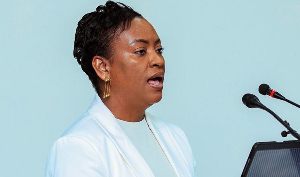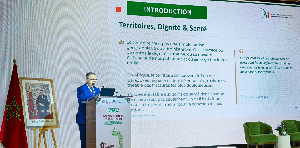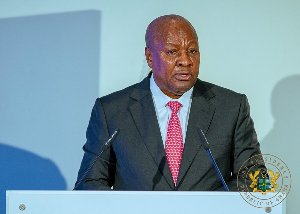Accra, Sept. 22, GNA - Dr Robert Adjaye, an oil and gas expert, has expressed the need for Ghana to develop the skills of Ghanaians to take advantage of the fledgling industry.
This, according to him, is the only way the country could maximise gains from its local content policy, which envisages a target of 90 per cent local participation in the oil and gas industry by 2020. He observed that developing a local content policy would not necessarily increase indigenous participation in the industry, because it is easy for multi-national oil companies to get around the provisions, if Ghanaian enterprises lack the prerequisite requirements to do business with them.
Dr Adjaye gave the advice at a day's workshop in Accra to educate the business community on the opportunities in the emerging oil and gas sector and certification requirements in the industry. It was organised by the Private Enterprise Foundation in partnership with the Ghana Journalists Association. The local content policy is a set of rules established by a government to assure that indigenous companies and individuals participate actively in petroleum operations to achieve a number of goals.
These include: the transfer of knowledge to host-country citizens; capacity-building of local companies; creation of local jobs; and development and growth of the local economy. Dr Adjaye noted that experience from successful countries like the United Kingdom and Norway had proved that the oil and gas sector could be the engine for economic growth, industry and employment and enhance general economic development.
He suggested that policies on the oil and gas sector should give preference for local industries and such intervention should focus primarily on targeted training to build the capacity of Ghanaians. Dr Adjaye, who is the Rector of the Accra-based Petroleum Skills Development Institute, said local companies should be encouraged to form partnerships with educational institutions to develop the needed training centres and internship.
He also proposed the setting up of local companies to form strategic alliances among themselves and with Foreign Service providers to increase technology base and expertise, as well as obtain international standards and certification for their goods and services. Dr Adjaye called for the establishment of an independent petroleum regulatory authority to ensure the judicious management and utilisation of the oil revenue.
Such a body, he said, would guarantee that huge premium and responsibilities are placed on Ghana's successive authorities to wisely manage the oil wealth. The oil expert however cautioned private enterprises not to rely solely on government interventions to increase their participation in the oil and gas industry, and strive to take control of their own development.
Although significant revenue is envisaged from Ghana's oil discovery, experts suggest that expected money would have minimal impact on the economy if local companies are not actively engaged in providing the various services required by the sector. Issues of capacity, timeliness and quality assurance, according to the experts may hinder the involvement of local entrepreneurs in the industry.
Business News of Wednesday, 22 September 2010
Source: GNA












